Drawing lessons for the future from past and present
For a few months, TTP has become increasingly bold in its attacks on civilian and military targets across the country

Lost in the maize of political infighting and perilous economic conditions, the news of our gallant officers and soldiers getting martyred or seriously wounded while defending the borders is not getting the attention it deserves. In reality, the Tehreek-i-Taliban Pakistan continues to pose a serious security challenge. Inspired by the success of Taliban in Afghanistan the TTP is trying to create an enclave in certain areas of tribal belt and in Swat where it has designs to impose its version of Islam.
For a few months, the TTP has become increasingly bold in its attacks on civilian and military targets across the country. But Pakistan is not Afghanistan and the military with the full support of the local people has been largely successful in eliminating most of TTP hideouts and pushed them back. However, the Taliban government in Afghanistan, until recently, was turning a blind eye to the activities of the TTP. Being comrade in arms it was allowing them a freehand to operate in Afghanistan and launching attacks in Pakistan. Pakistan’s discreet threat that if Afghanistan does not take action against them, it will be compelled to retaliate, even if it means crossing the border seems to have registered and taken seriously.
But the unfortunate aspect is that the government and the opposition have been so locked in their mutual antagonism that the country’s major problems — be it the security, economy or preparations for national elections — have taken a back seat.
The most pronounced actor occupying the political scene until recently has been the leader of opposition Imran Khan. Having been ousted from power in early 2022 through a no-confidence motion in the parliament and losing the support of the military leadership he has been until recently on the streets agitating with his ardent, mostly young, followers. He has further antagonised the army leadership by the rowdyism displayed by its workers and rampaging the official residence of the Corp Commander in Lahore. Many of his rowdy followers have been arrested. Seeing no immediate prospects of Khan making a comeback, there has been a mass exodus of party stalwarts. Many also disapproved and disassociated from the happenings of 9th May.
The primary reason of Khan’s removal has been the mishandling of the economy and his mistaken belief that with his large following he can ignore the military’s advice and their priorities. Ironically, it was the army leadership’s support that helped him get into power in 2018 and sustain for three and half years. And now that the army has pulled back its support being disappointed in PTI’s performance, Khan’s chances of regaining power have dwindled sharply.
It is doubtful if Khan would draw any lessons from what he and the country has gone through during his tenure as prime minister and since then as an opposition leader. His greatest weakness is his strong ego and self-righteousness. Lack of respect for the opposition, particularly its leaders, and disregard for basic democratic norms and culture have come his way in succeeding to garner a majority in parliament.
Khan’s intense dislike of opposition leadership and his categorical refusal to interact with them or sit in parliament further weakened democracy and strengthened instead the power of the military and judiciary. His latent support for violence to make a comeback has also backfired.
Khan’s handling of foreign policy too was erratic. The way he initially accused the US of being responsible in removing him from PM’s Office and later retracted neither served the interests of the country nor his person, and placed his expatriate supporters in an awkward situation. Interestingly, it is US human rights organisations and senators that have shown concern that he be dealt with in accordance with the law.
There are also lessons for PML-N and PPP leadership from the recent happenings. They must essentially rely on good governance and pursue performance-based politics. Leaning on crutches of judiciary or security establishment weakens democracy and takes away the focus from the people’s well-being. But this would require a major overhaul of the power structure of political parties. Dynastic dominance in parties is fine provided leaders are chosen by giving equal opportunities to contestants. It is also in the interest of those members of the family to ensure transparency in their elections as is the case in several mature democracies like the US and Britain.
It is equally important for the present and future governments, apart from working toward political stability, to focus on improving the security situation. The TTP and other militant groups have to be dealt with firmly. Presently, their activities and area of influence seem to be on the rise. Central to dealing with militancy is the economic betterment and improving political awareness of the people.
The government should not delay elections hoping that it would help them get into power. This would in fact make matters worse, as the situation is turning out to be. The economy is on the verge of bankruptcy and the government is desperately looking for revival of the IMF agreement as a last resort to stave off financial collapse. Putting up a brave face in these circumstances by the finance minister does not help. There is very little reason not to pursue the right path of announcing an election date soonest possible. Although having elections alone will not suffice unless political parties once in power focus seriously on improving the economy which in recent times has contracted. And the way it is being handled as brought out earlier does not give reason for any optimism. Domestic development is slow and productivity is on the decline. The government should focus on institutional development and avoid fritting away national resources and valuable time in pulling opponents down.
Placing the country in the hands of a political party or a coalition that enjoys the support of the people would help in steering the country in these difficult times. For this, we need free and fair elections.
Published in The Express Tribune, June 14th, 2023.
Like Opinion & Editorial on Facebook, follow @ETOpEd on Twitter to receive all updates on all our daily pieces.






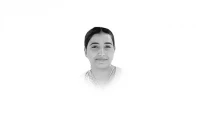

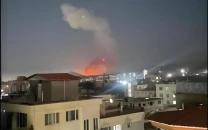
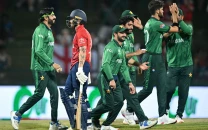
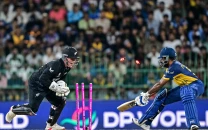
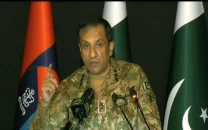
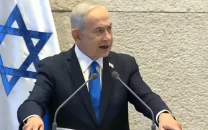


COMMENTS
Comments are moderated and generally will be posted if they are on-topic and not abusive.
For more information, please see our Comments FAQ